Key takeaways:
- Editing is a transformative process that involves refining ideas, clarifying arguments, and enhancing narrative flow, not just correcting grammar.
- Common editing mistakes include neglecting introductions, inconsistent voice, overusing jargon, and rushing through the editing process.
- Utilizing tools like Grammarly and ProWritingAid can significantly improve editing efficiency and uncover overlooked errors.
- Self-editing fosters personal growth and clarity in writing, encouraging introspection and the ability to critique one’s work effectively.
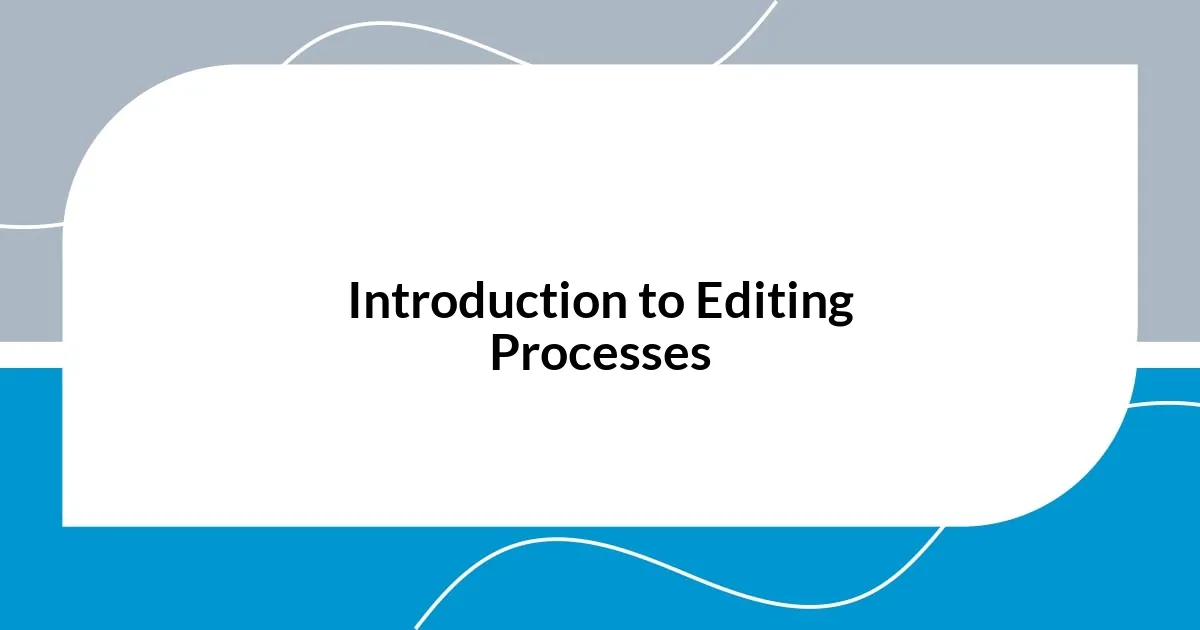
Understanding the Editing Process
Understanding the editing process can feel overwhelming at first, but it’s truly an art that transforms good writing into great writing. I remember my first editing experience; I thought it was just cutting words here and there. But I quickly learned that it’s about much more than that. It’s about refining ideas, clarifying arguments, and enhancing the overall flow of the piece.
As I delved deeper into editing, I realized it’s like sculpting – you chip away the unnecessary bits to reveal the masterpiece underneath. Have you ever felt that rush when a paragraph suddenly clicks into place? That moment of clarity is what makes editing worthwhile. It’s not just about grammar and punctuation; it’s about shaping the narrative in a way that resonates with the reader.
Moreover, I discovered that multiple passes are essential for thorough editing. The first read might focus on big-picture elements like structure and clarity, while later passes zero in on sentence-level details. Each stage brings its own challenges but also its own rewards. How many times have you read something and thought, “I wish I had the chance to make it better”? Embracing the editing process gives you that opportunity to truly refine your voice and message.
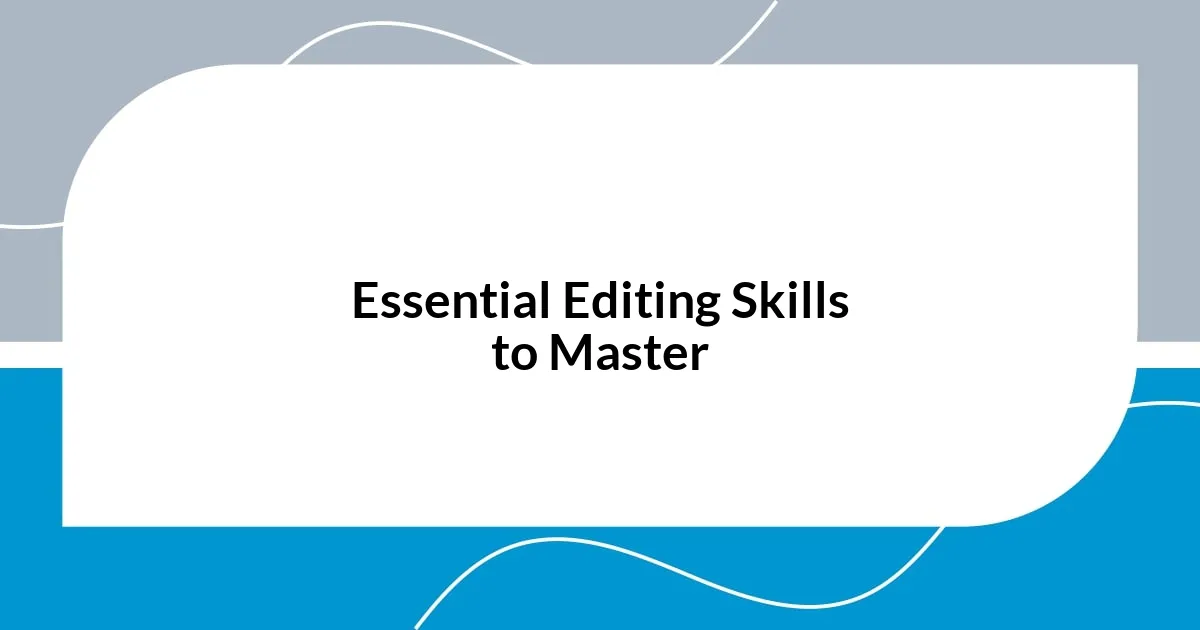
Common Editing Mistakes to Avoid
Editing can be a tricky journey, especially when you fall into common pitfalls. From my experience, I’ve found that overlooking small details during edits often leads to bigger problems down the line. For instance, I once submitted a piece that I believed was polished, only to realize I had missed several typos that altered the meaning. It’s crucial to be vigilant, as these small errors can distract and confuse readers, detracting from your message.
Here are some common editing mistakes I’ve learned to avoid:
- Neglecting the first impression: Failing to refine the introduction can leave a reader disengaged from the start.
- Inconsistent voice: Switching tones throughout your piece can create confusion and disrupt the flow.
- Overusing jargon: Too much technical language might alienate your audience instead of drawing them in.
- Ignoring feedback: Not considering insights from peers can hinder your growth; collaboration is key.
- Rushing the process: I’ve often regretted pushing through edits too quickly, which led to missed errors.
Taking your time to revise thoughtfully can make all the difference in how your writing is perceived. Remember, editing is where your writing truly takes shape.
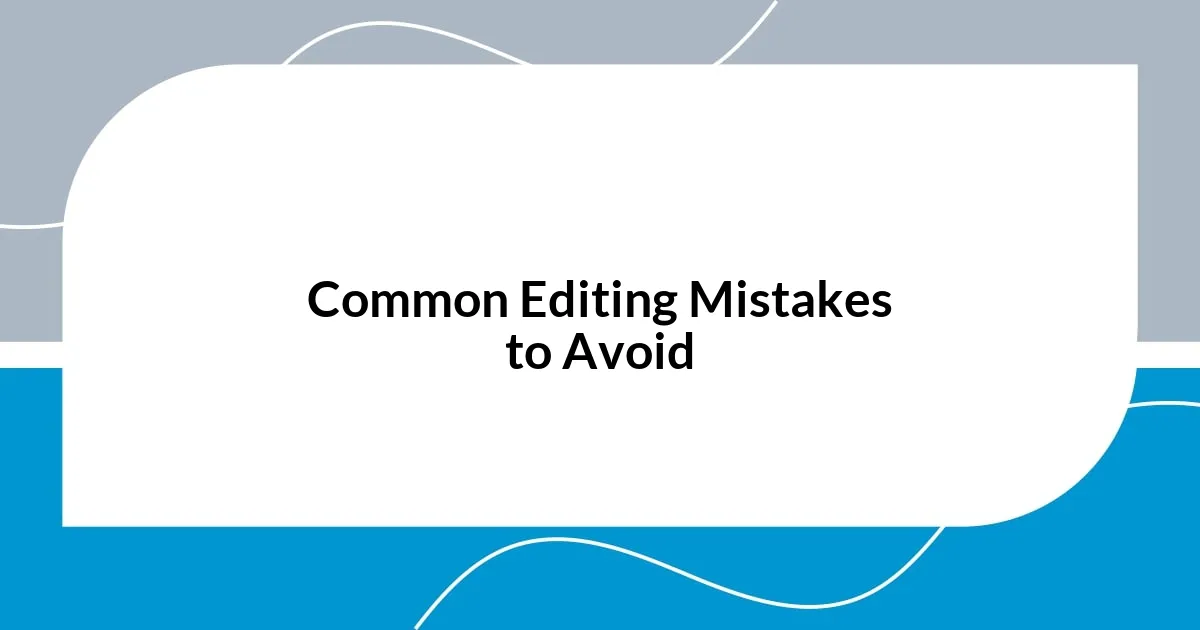
Tools for Effective Editing
When it comes to tools for effective editing, I can’t stress enough the impact they can have on your workflow. Over the years, I’ve experimented with various editing software and discovered that some make the process smoother and more efficient. For example, I found that Grammarly not only catches grammatical errors but also offers style suggestions, which is something I personally value in my editing toolkit.
Another tool I’ve grown fond of is ProWritingAid. Initially, I was skeptical about using editing software, thinking I could manage just with my keen eye. But after using ProWritingAid, I was amazed at how it helps uncover repeated phrasing and awkward sentence structures that I hadn’t noticed. It’s like having a seasoned editor by my side, guiding me toward clearer writing.
| Tool | Benefits |
|---|---|
| Grammarly | Grammar checks and style suggestions |
| ProWritingAid | In-depth analysis of writing style and structure |
| Hemingway Editor | Highlights complex sentences for clarity |
| Scrivener | Great for organizing large writing projects |
| Google Docs | Collaboration features for real-time feedback |
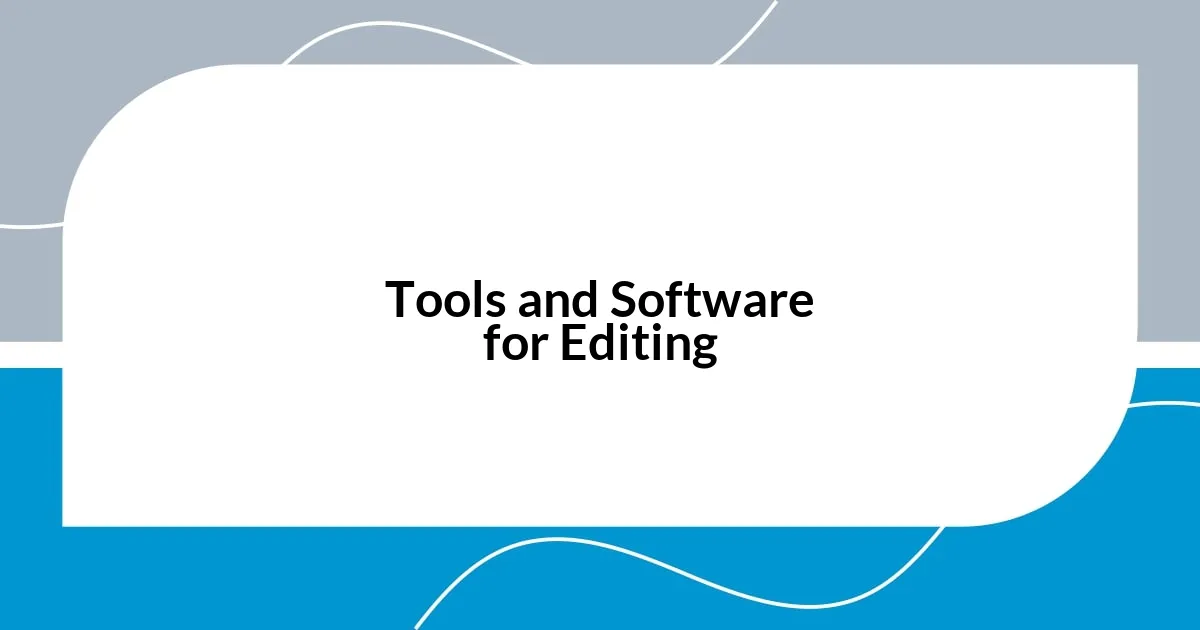
Techniques to Enhance Your Editing
When I first delved into editing, I underestimated the value of taking breaks between writing and revising. I remember one particularly overwhelming night spent staring at my manuscript, convinced I could polish it in one sitting. But then, I stepped away for a few hours. Coming back with fresh eyes allowed me to spot inconsistencies that had previously escaped my notice. It’s remarkable how a little distance can refresh your perspective and heighten your awareness of errors.
Reading my work aloud is another technique I’ve found invaluable. There’s something about hearing the words that brings clarity. I can’t count how many times I’ve stumbled over awkward phrases or run-on sentences when reading out loud, prompting a quick edit. Have you ever tried this? It might feel a bit odd at first, but it opens a whole new level of awareness to your writing rhythm and structure.
Lastly, I can’t emphasize enough the role of setting specific editing goals. Early on, I’d dive into my edits without a plan. The result? Chaos. Now, I set clear objectives for each session—whether it’s tightening up dialogue or enhancing descriptions. It transforms the editing process from an overwhelming task to a structured endeavor. I often ask myself, “What’s my focus today?” This simple question steers me in the right direction and makes each editing session feel purposeful.
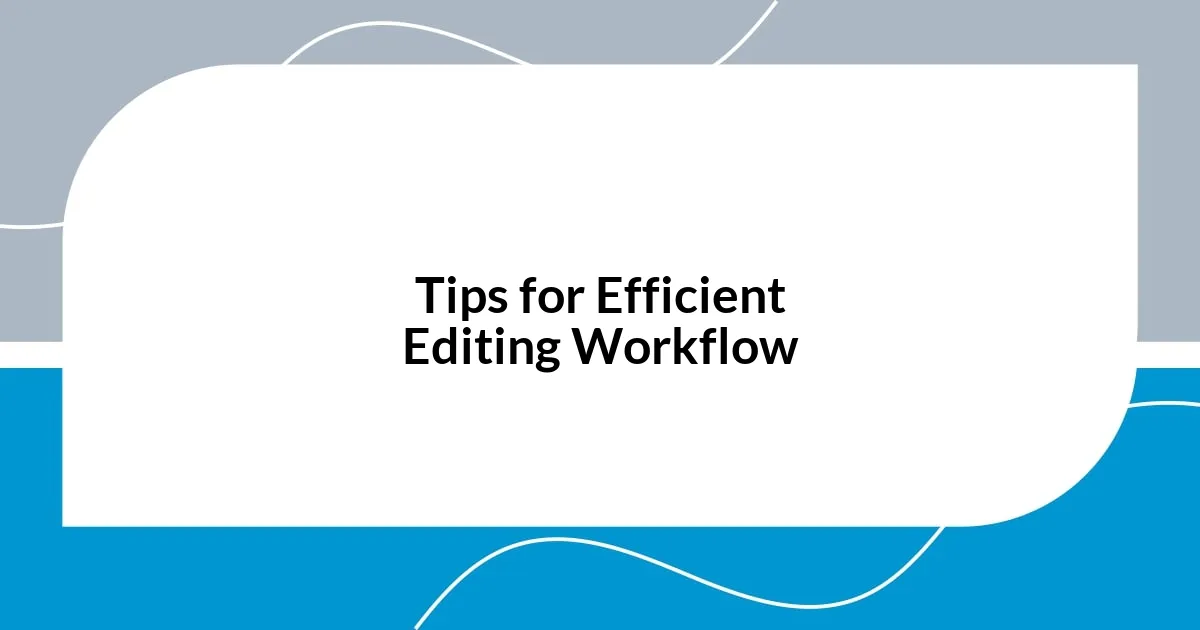
Getting Feedback as an Editor
Getting feedback as an editor can feel daunting, but I’ve learned it’s a crucial part of growth. I recall feeling vulnerable when I started sharing my edits with peers. It’s nerve-wracking, right? But each piece of feedback—whether positive or critical—has taught me something valuable about my editing style.
I remember a specific instance where a fellow editor pointed out my tendency to overlook repetitive phrases. At first, I felt defensive; who wants to hear they’ve missed something obvious? But later, I realized that feedback is a gift—I began to see it as a chance to refine my skills rather than a personal critique. Embracing this mindset transformed my approach. It made me more open to constructive criticism, ultimately enhancing my editing precision.
When seeking feedback, I find it essential to ask specific questions. Instead of just saying, “What do you think?” I ask, “Did any section feel unclear or confusing?” This targeted approach makes it easier for my peers to offer constructive insights. Have you ever tried phrasing feedback requests this way? I believe it encourages deeper, more meaningful discussions, leading to a richer editing experience for everyone involved.
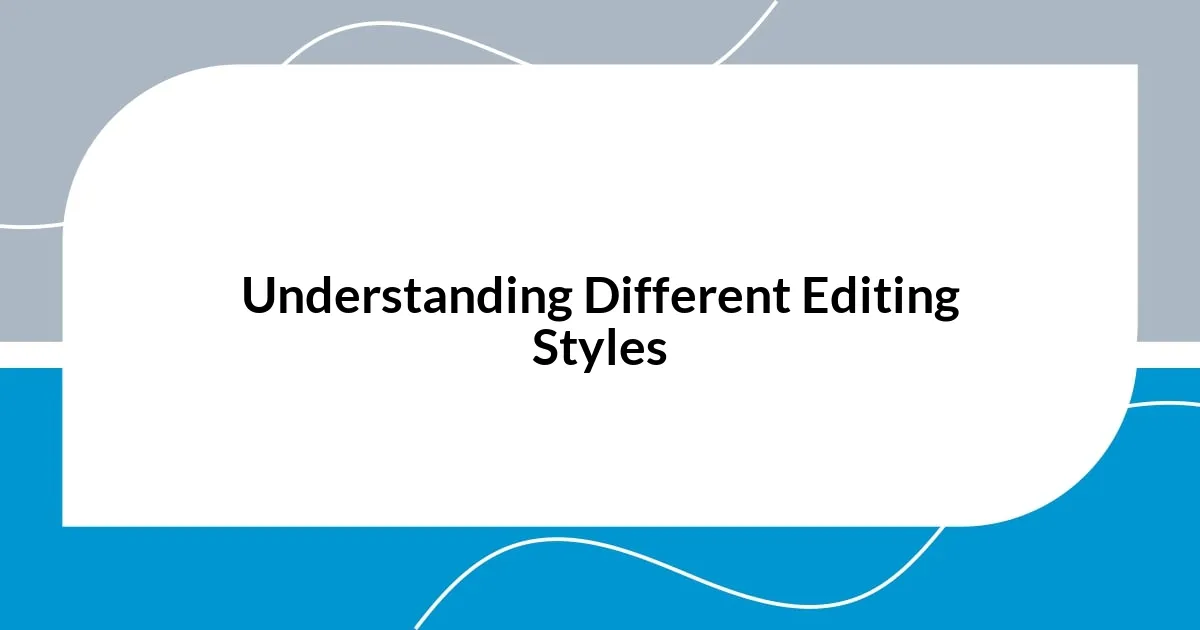
The Importance of Self-Editing
The act of self-editing is fundamental to honing my craft, and it really proves that I’m my own best critic. I recall sifting through an early draft, feeling that something was off but unable to pinpoint it. After the third or fourth read, I discovered an entire subplot that didn’t add value. I had poured my heart into it, yet realized it was cluttering the narrative. Have you ever faced a similar situation where you had to cut something you loved for the sake of clarity? It’s painful but so necessary.
When I self-edit, I have learned to approach my writing with a mix of harshness and kindness. I remember grappling with a particularly emotional scene, convinced it was perfect just the way it was. But after stepping back and revisiting it while pretending I was a reader, I found it overly sentimental. It’s been a game changer to adopt that reader’s mindset. The freedom to critique myself has made me not just a better editor, but a more effective storyteller.
Moreover, I’ve come to value self-editing as a chance for introspection. Each time I revise, I’m not just refining words; I’m reevaluating my intent and tone. In one of my projects, after reading through my draft, I realized an entire character arc felt disconnected from my voice. Letting my thoughts wander in the margins helped me clarify my vision. Have you ever noticed the difference in how you feel about your work after a good edit? It’s almost like rediscovering a part of yourself—one that’s become clearer and more confident through the editing process.
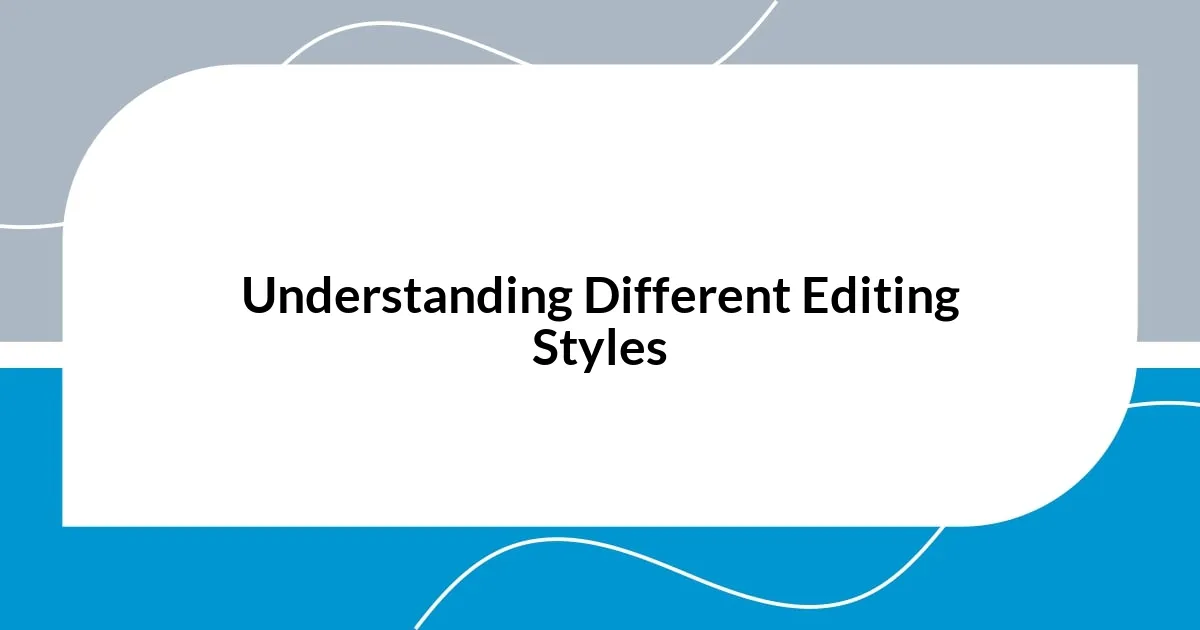
Tips for Finalizing Your Edits
Finalizing your edits can feel like standing on the brink of a leap into the unknown. I once spent weeks polishing a piece, tinkering with every sentence, and just when I thought it was ready, I found myself hesitating. It’s easy to get caught up in perfectionism, but I’ve learned to embrace a little imperfection. Sometimes, stepping away for a day or so helps me return with fresh eyes and clarity. Have you ever experienced this spark of realization after a brief break?
I tend to utilize checklists as I finalize my edits. Having a structured approach can mitigate those last-minute nerves. For instance, I always ask myself whether the piece flows logically, if every word serves a purpose, and if there’s an emotional connection with the reader. I remember one time, just as I was about to submit, I decided to do a final read aloud. It revealed awkward phrases I had glossed over—those little hiccups were gone in a flash. Have you tried this method, or perhaps a similar approach? It can really save you from the embarrassment of presenting something that wasn’t quite polished.
Finally, I’ve discovered the power of knowing when to let go. There’s often a voice in my head saying, “Is it really done?” I recall finishing a draft that I was unusually proud of, but it took everything in me not to tinker away for hours. It’s important to trust your instinct and the feedback you’ve received. When I hit “send” for that draft, it felt liberating—not just because I was finished, but because I had confidence in my work. How do you know when it’s time to call your editing completed? Trust your journey; it’s part of growth.